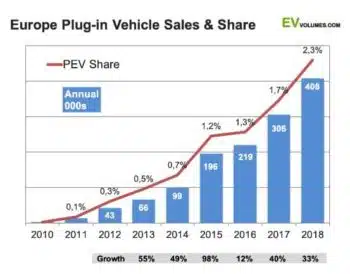The growth of electric vehicles drives an anticipated reduction in fuel consumption in China

In recent years, China has undergone a remarkable transformation in its automotive sector, driven by the growing rise of electric vehicles. This phenomenon has not only altered the dynamics of the automotive market but has also begun to have a significant impact on fossil fuel consumption. As sales of combustion engine cars decline, a future where dependence on oil is reduced looms, marking a possible turning point in the pursuit of more sustainable and eco-friendly transportation in the country.
China is experiencing a transformative shift in its automotive sector, driven by the notable increase in the adoption of electric vehicles. This trend is not only changing the automotive landscape but is also generating a positive impact on reducing fossil fuel consumption. According to the latest reports, a decline in oil demand has been recorded, indicating that the country may be on the cusp of a significant shift towards a more sustainable future.
A declining sales outlook for combustion vehicles
The decline in sales of combustion engine cars in China indicates a turning point in energy consumption. In 2024, it is projected that the country will use approximately 1.3% less oil compared to the previous year, translating to around 394 million tons instead of 399 million tons. This decrease reflects a broader trend towards sustainability and the adoption of cleaner technologies in the automotive sector.
A bright future for electric vehicles
The growth of electric vehicles in China is evident through compelling figures. It is estimated that by 2035, gasoline consumption could fall between 35% and 50%, reaching between 80 to 100 million tons. Diesel demand is also expected to decrease by a similar magnitude, contributing to an overall reduction in the use of refined fossil products, which could drop by 25% to 40%, equivalent to a reduction of up to 290 million tons. These figures indicate the impact of the transition towards greener vehicles.
The impact of electric vehicles on the environment
The decrease in oil demand in China has significant repercussions for the fight against climate change, as the country is the largest emitter of CO₂ globally. Despite the efforts of political leaders to reduce greenhouse gas emissions, the speed and effectiveness of the energy transition largely depend on the increase in the adoption of electric cars. The ability of these vehicles to be charged with clean energy is essential to achieving these goals.
The evolution of energy infrastructure
Beijing and other cities are beginning to rely more on renewable energy sources, such as wind and solar energy. Although coal remains a primary source, its use is declining, allowing renewable energy to grow unabated. Additionally, progress in the infrastructure for charging electric vehicles is facilitating this transition, supporting the mass adoption of these technologies.
Economic and competitive benefits of electrification
The transition to electric vehicles not only brings environmental benefits; it also provides economic advantages for consumers. Currently, it is estimated that there are 30 million electric cars on Chinese roads, accounting for nearly 10% of all registered cars. This evolution is helping to reduce China’s external energy dependence and providing financial relief to households that adopt cleaner and more efficient alternatives.
The oil industry faces a new challenge
The rise of electric vehicles represents a moral and economic challenge for the oil industry, which until recently considered China a pillar of growth in fossil fuel demand. The change in market dynamics could have significant implications for future investments within the oil sector and the direction it will take in the coming decades.
It is clear that the growth of electric vehicles is redefining China’s energy future, paving the way for more sustainable and less fossil fuel-dependent consumption. This transition, driven by technological innovation and the need to reduce environmental impact, is shaping up to be a milestone in the pursuit of a greener future.
For more information about electrification and the evolution of the automotive industry, several relevant resources can be consulted, including articles on topics such as Yamaha and its transition to electric vehicles and explorations of vehicles in Mexico.
In conclusion, the consolidation of electric vehicles not only represents a significant advancement in sustainable mobility but also promises a cleaner and more efficient energy future for the Asian nation, a goal that everyone is striving to achieve today.
The impact of the growth of electric vehicles on fuel consumption in China
The accelerated growth of electric vehicles in China has marked a crucial shift in the country’s energy landscape. With a significant decrease in sales of internal combustion vehicles, it is evident that the consumption of fossil fuels is on a downward trajectory. According to reports, in 2024, the use of oil for refined products decreased by 1.3% compared to the previous year. This change is indicative of a broader trend towards the electrification of transportation.
The projections for the future are even more promising, with an anticipated decline in gasoline consumption that could range between 35 and 50% by 2035, which would correspond to a reduction of 80 to 100 million tons. This decrease is not limited to gasoline; diesel demand is also expected to fall similarly. This impact on the overall consumption of fossil products reflects China’s commitment to combating climate change and improving the sustainability of its transportation system.
However, it is important to note that this energy transition is not uniform across all sectors. As road transport reduces its consumption, other sectors, such as aviation, are increasing their fuel use. Despite this, the advancement in the adoption of electric vehicles remains a decisive step toward a cleaner energy future.
China’s dependence on renewable energy sources continues to grow, which, combined with the rise of electric vehicles, translates into a positive impact on both reducing CO₂ emissions and energy security. This scenario changes the rules of the game in the automotive and energy industries, encouraging both governments and industries to move towards a more sustainable future.



